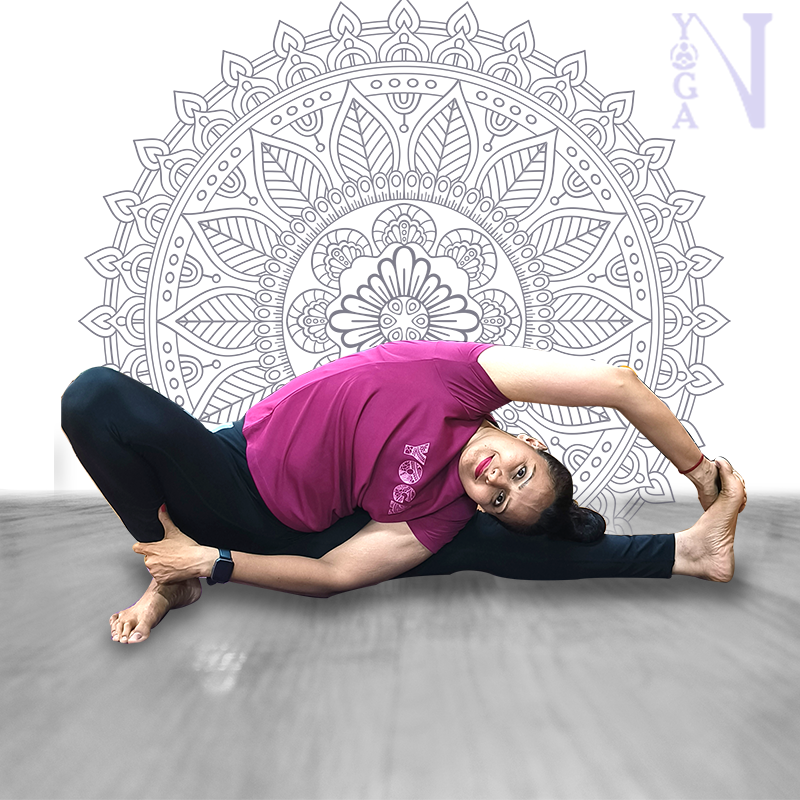Yoga & Sleep Apnea
- Home
- Yoga & Sleep Apnea
In this era of technology and fast-paced lifestyles, a poor lifestyle may quickly become a habit, resulting in a variety of lifestyle-related problems affecting both young and elderly people. With a lot of duties, one may begin to overthink it, which may lead to stress.This eventually develop into a variety of disorders, which can be more stressful for you and your body. Sleep apnea is a sleeping disorder that can lead to major health issues like high blood pressure ,Tachycardia and heart difficulties. It is one of those disorders that can worsen if not addressed.
Sleep apnea is a potentially serious sleep disorder in which breathing repeatedly stops and starts. If you snore loudly and feel tired even after a full night's sleep, you might have sleep apnea.
Untreated sleep apnea causes people to stop breathing periodically during the night, often hundreds of times. Sleep apnea can lead to a variety of health issues, including acidity, headaches, hypertension, Tachycardia ,stroke, cardiomyopathy, heart failure, diabetes, and heart attacks. Sleep apnea can also cause professional damage, work-related accidents, and car accidents, as well as academic failure in children and teenagers.
The symptoms of obstructive and central sleep apneas overlap, sometimes making it difficult to determine which type you have. The most common symptoms of obstructive and central sleep apneas include:

This type of sleep apnea happens when the muscles in the back of the throat relax. These muscles support the soft palate, the triangular piece of tissue hanging from the soft palate called the uvula, the tonsils, the side walls of the throat and the tongue.
When the muscles relax, your airway narrows or closes as you breathe in. You can't get enough air, which can lower the oxygen level in your blood. Your brain senses that you can't breathe, and briefly wakes you so that you can reopen your airway. This awakening is usually so brief that you don't remember it.
You might snort, choke or gasp. This pattern can repeat itself 5 to 30 times or more each hour, all night. This makes it hard to reach the deep, restful phases of sleep.
This less common form of sleep apnea occurs when your brain fails to send signals to your breathing muscles. This means that you make no effort to breathe for a short period. You might awaken with shortness of breath or have a difficult time getting to sleep or staying asleep.
Sleep apnea can affect anyone, even children. But certain factors increase your risk.
Factors that increase the risk of this form of sleep apnea include:
Use of alcohol, sedatives or tranquilizers. These substances relax the muscles in your throat, which can worsen obstructive sleep apnea.
Risk factors for this form of sleep apnea include:
Using narcotic pain medicines. Opioid medicines, especially long-acting ones such as methadone, increase the risk of central sleep apnea.:
Snoring can make for a bad night’s sleep, for you and your bed mate. But if it happens because you have obstructive sleep apnea (OSA), it’s a sign of a bigger health problems.
Yoga is a great practice whose goal is to restore balance to the body and mind. Yoga has now become a popular type of fitness all across the world, with more and more individuals rising each morning to conduct the yoga asanas.
Many individuals, particularly those in their forties and fifties, have sleep problems. According to research, yoga may not only be excellent for boosting core strength, flexibility, and psychological stress, but it may also enhance your sleep patterns. Yoga can help you fall asleep faster, sleep for longer periods of time, and return to sleep more quickly if you wake up in the middle of the night.
Yoga can also help to relieve stress and quiet the mind, resulting in a higher overall quality of life. By strengthening the upper airway muscles, rhythmic breathing can aid with sleep apnea.
Yoga breathing exercises accompanied with some special exercises can assist in strengthening, toning, and opening the upper airway muscles, which can help minimize & even cure the symptoms of sleep apnea. They greatly reduce stress and soothe the mind, which affects appetite, sleep quality, and the desire to live a healthier lifestyle.
Just the key is to be CONSISTENT & TO DO UNDER PROPER GUIDANCE ,WITH A CERTIFIED YOGA TRAINER.
These are the two cases of sleep apnea, Tachycardia successfully solved by yoga techniques by NAINAYOGA & have successfully maintained the positive change by consistency & right guidance.
Thank you
Naina Yoga
Pune, 9890141951